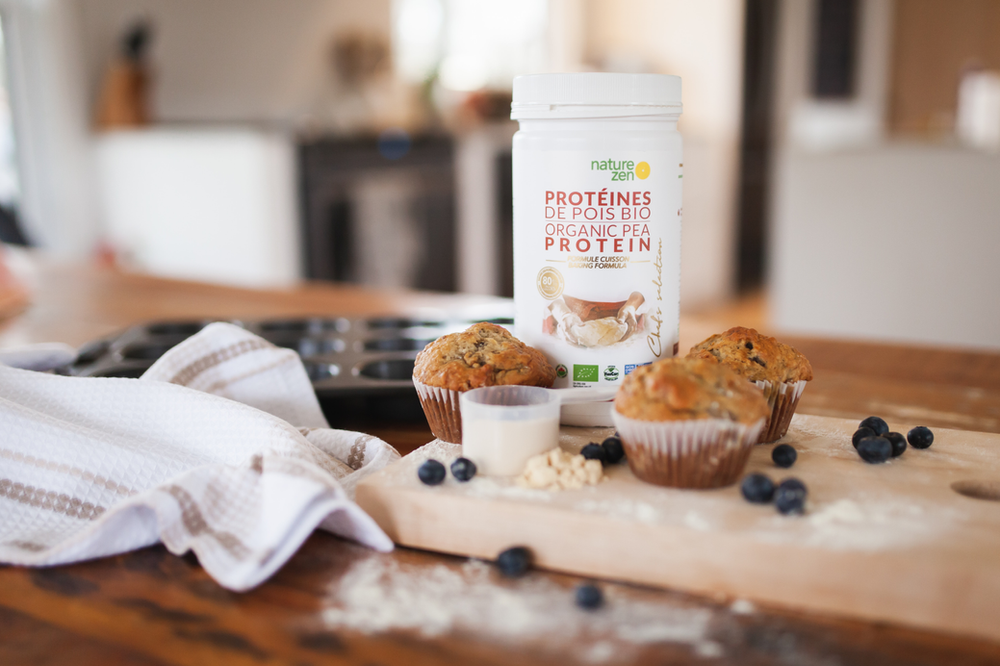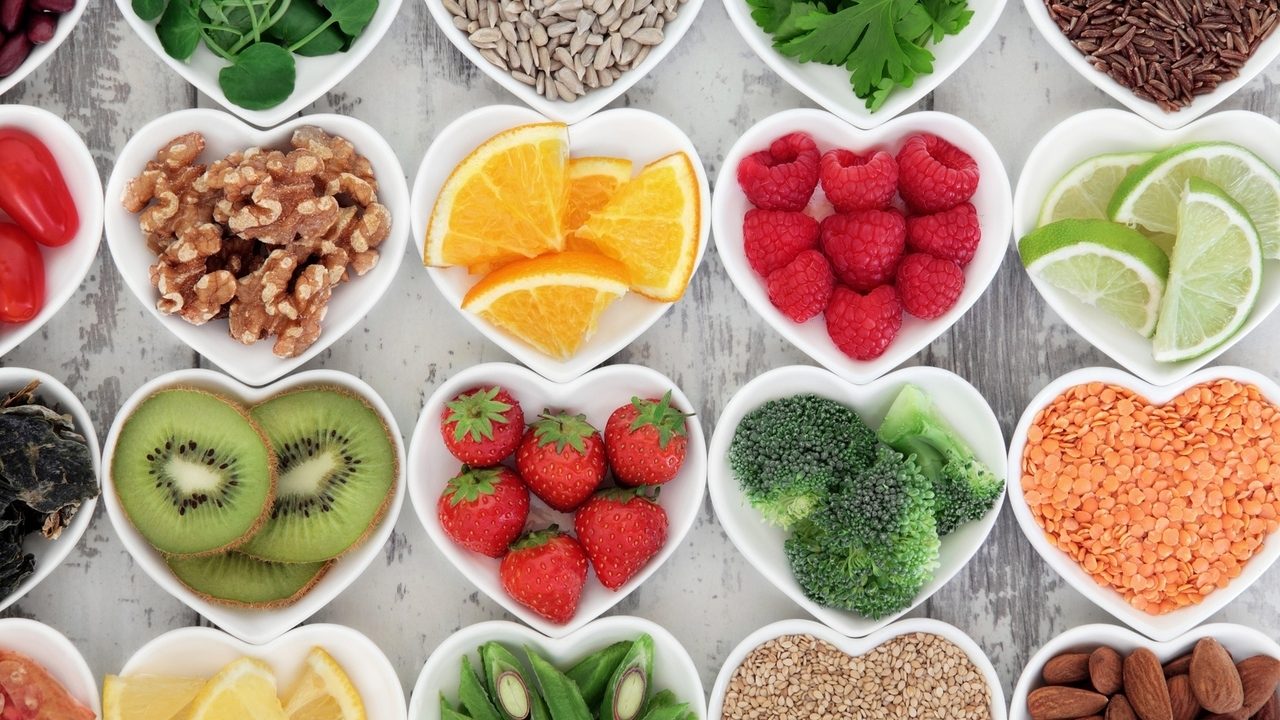When it comes to losing weight, planning your meals can be a crucial tool. Let's take a quick look at why meal planning is so important and how setting realistic goals can make a big difference.
Meal planning means thinking ahead about what you're going to eat. It's not just about counting calories but making smart choices. When you plan your meals, you're more likely to eat balanced and nutritious food.
This helps your body get the right nutrients while keeping you on track for weight loss.
Setting goals is important, but they need to be realistic. Losing weight takes time, and it's not always a fast process. By setting achievable goals, you set yourself up for success. It's about making changes that you can stick with in the long run.
Let's explore meal planning ideas for weight loss and learning how making smart food choices play a role in this journey.
Understanding Nutritional Needs
Identifying Caloric Requirements
Calories are like fuel for your body, and everyone's needs are different.
Identifying your caloric requirements involves figuring out how many calories your body needs to function properly.
This depends on factors like your age, gender, activity level, and overall health. Knowing this can help you create a meal plan that provides the right amount of energy without overdoing it.
Balancing Macronutrients (Proteins, Fats, Carbohydrates)
Macronutrients are the big players in your diet, and they include proteins, fats, and carbohydrates. Balancing these is key for a healthy meal plan.
Proteins help with muscle repair, fats provide energy and support vital functions, while carbohydrates are your body's main source of fuel. Finding the right balance ensures your body gets what it needs for optimal performance.
Incorporating Micronutrients (Vitamins and Minerals)
Micronutrients are the small but mighty components that your body needs in smaller amounts.
These include vitamins and minerals, and they play crucial roles in various bodily functions.
Incorporating a variety of fruits, vegetables, whole grains, and lean proteins into your meals ensures you get a good mix of micronutrients. This balanced approach supports overall health and aids in weight loss.
Smart Food Choices
Whole Foods vs. Processed Foods
When it comes to smart food choices, think about opting for whole foods over processed ones. Whole foods are closer to their natural state and are packed with nutrients.
Vegetables, fruits, whole grains, and lean proteins are examples of whole foods.
On the other hand, processed foods often contain added sugars, unhealthy fats, and fewer nutrients. Choosing whole foods supports your weight loss journey by providing your body with the nutrients it needs without unnecessary additives.
Choosing Lean Proteins
Proteins are essential for muscle health and overall well-being. When choosing proteins, opt for lean sources like chicken, turkey, fish, beans, and tofu.
These choices are lower in saturated fats and calories, making them great for weight loss. Including lean proteins in your meals helps keep you full and satisfied, supporting your efforts to reduce overall calorie intake.
Opting for Complex Carbohydrates
Carbohydrates are a vital source of energy, but not all carbs are created equal.
Choose complex carbohydrates found in whole grains, vegetables, and legumes.
These carbs provide a steady release of energy, helping you stay full for longer periods and reducing the likelihood of overeating. They also contain essential nutrients and fiber, contributing to a balanced and healthy diet.
Healthy Fats for a Balanced Diet
Contrary to the misconception that all fats are bad, incorporating healthy fats into your diet is crucial. Choose sources like avocados, nuts, seeds, and olive oil.
These fats are unsaturated and offer various health benefits, including supporting heart health. Including healthy fats in your meals adds flavor and helps keep you satisfied, contributing to a well-rounded and sustainable weight loss plan.
Weekly Meal Prep Tips
Batch Cooking for Efficiency
Batch cooking is a game-changer when it comes to meal prep.
Choose a day in your week to prepare larger quantities of staple ingredients like rice, quinoa, or grilled chicken.
This not only saves time during the week but also ensures you have readily available components for quick and healthy meals. Consider investing in stackable meal prep containers to organize and store your batch-cooked items efficiently.
Planning Diverse and Flavorful Meals
Keep your meals interesting by planning a variety of flavors and cuisines. Incorporate different herbs, spices, and sauces to add taste without unnecessary calories.
Planning diverse meals not only makes your eating experience more enjoyable but also ensures you get a broad range of nutrients. Experiment with different recipes and consider trying new vegetables or grains to keep things exciting.
Creating Portion-Controlled Servings
Portion control is a key element of successful weight loss.
Instead of eyeballing servings, invest in portion-controlled containers. These containers are designed to hold specific amounts, helping you avoid overeating.
For easy meal prep, these Prep Naturals Glass Meal Prep Containerswith compartments will let you keep things simple – these containers are microwave-safe, dishwasher-friendly, and allow you to plan and control your portions effectively. Having pre-portioned meals readily available supports your weight loss goals by promoting mindful eating and preventing excessive calorie intake.
Meal Planning Ideas for Weight Loss
Breakfast Options
Start your day right with a variety of nutritious breakfast options. Consider oatmeal with fresh berries, Greek yogurt with granola and honey, or a veggie omelette.
These choices provide a good balance of carbohydrates, protein, and essential nutrients to kickstart your morning.
Lunch Ideas
Lunchtime can be both delicious and healthy. Try a grilled chicken salad with mixed greens and a vinaigrette dressing, a quinoa bowl with roasted vegetables, or a whole-grain wrap filled with lean turkey and veggies. These lunch ideas keep you fueled and satisfied throughout the day.
Dinner Recipes
Dinner is an opportunity to enjoy a satisfying and well-rounded meal. Experiment with recipes like baked salmon with quinoa and steamed broccoli, a vegetable stir-fry with tofu and brown rice, or a lean beef and vegetable stew.
These dinner options offer a mix of flavors and nutrients to support your weight loss journey.
Snacks for Between Meals
Snacking can be a part of your meal plan, too. Opt for healthy snacks such as a handful of mixed nuts, sliced apple with peanut butter, or Greek yogurt with a sprinkle of granola. These snacks provide energy between meals without derailing your weight loss efforts.
Incorporating Variety and Flavor
Trying Different Cuisines
Why stick to the same old when there's a world of flavors out there? Experiment with different cuisines to spice up your meals.
Whether it's a Mexican-inspired burrito bowl, a Mediterranean quinoa salad, or an Asian stir-fry, exploring diverse cuisines adds excitement to your plate and introduces a range of nutrients to your diet.
Experimenting with Herbs and Spices
Don't underestimate the power of herbs and spices. They're like magic for transforming ordinary dishes into extraordinary ones. Sprinkle some fresh herbs like cilantro or basil on your salads, experiment with aromatic spices like cumin or turmeric in your cooking, and watch how they elevate your meals to a whole new level of deliciousness.
Avoiding Monotony to Stay Motivated
Monotony is the enemy of motivation. Keep things interesting by avoiding repetitive meals.
Rotate your recipes, switch up your protein sources, and vary your side dishes. This not only keeps your taste buds happy but also prevents boredom, helping you stay motivated on your weight loss journey. Remember, a little variety goes a long way in making healthy eating enjoyable.
Mindful Eating Practices
Paying Attention to Portion Sizes
Let's talk about portions. It's not about restriction but about being aware.
Pay attention to how much is on your plate, and aim for balance. Consider using smaller plates to help control portions visually. Being mindful of portion sizes is a smart move for weight loss without feeling deprived.
Eating Slowly and Savoring Each Bite
In the rush of our busy lives, we often forget to enjoy our meals. Slow it down a bit.
Take the time to savor each bite. Put your fork down between bites, chew your food thoroughly, and really taste the flavors. Eating slowly not only enhances your dining experience but also allows your body to recognize when it's full, preventing overeating.
Listening to Hunger and Fullness Cues
Your body has a way of telling you when it's hungry and when it's had enough. Listen to those cues.
Eat when you're genuinely hungry, and stop when you feel satisfied. It's about tuning in to what your body needs, rather than following external cues like the clock. Trusting your hunger and fullness signals is a powerful tool in maintaining a healthy relationship with food and supporting your weight loss goals
Hydration for Weight Loss
Importance of Staying Hydrated
Water is your weight loss ally. Staying hydrated is not just about quenching your thirst; it plays a vital role in supporting your weight loss journey.
Drinking enough water helps your body function efficiently, aids digestion, and can even boost your metabolism.
It's like giving your body the fuel it needs to keep everything running smoothly.
Choosing Water Over Sugary Beverages
When it comes to hydration, water is the clear winner. Choose it over sugary beverages to cut down on unnecessary calories. Sodas, energy drinks, and sweetened juices may taste good, but they often come with added sugars that can hinder your weight loss efforts.
Opting for water not only keeps you hydrated without the extra calories but also promotes overall health. It's a simple and effective choice for supporting your weight loss goals.
Overcoming Challenges
Dealing with Cravings
Cravings can be a hurdle, but they're not unbeatable.
Instead of giving in to every craving, find healthier alternatives. If you're craving something sweet, opt for a piece of fruit. Craving something crunchy? Choose nuts or veggies.
Understanding and addressing your cravings with smart choices can help you stay on track with your weight loss goals.
Handling Social Situations
Social situations often come with tempting treats and indulgent meals.
The key is to plan ahead. If you know you'll be in a situation with tempting foods, eat something healthy beforehand to curb your hunger.
Additionally, don't be afraid to communicate your goals to friends and family. They might be more supportive than you think. Finding a balance between enjoying social occasions and sticking to your plan is key.
Adapting the Plan to Personal Preferences and Lifestyle
One size doesn't fit all, especially when it comes to meal plans.
Adapt your plan to fit your preferences and lifestyle. If you're not a morning person, don't force yourself into a big breakfast. If you love certain foods, find healthier ways to incorporate them.
Making your weight loss plan work for you ensures it's sustainable in the long run. It's about finding the right balance between healthy choices and what fits seamlessly into your life.
Tracking Progress
Keeping a Food Journal
Ever tried keeping a food journal?
It's a fantastic way to stay accountable and understand your eating habits. One handy product that I recommend for this is the "Fitlosophy Fitbook: Fitness Journal and Planner." It allows you to log your meals, track your water intake, and set weekly goals. Having a tangible record can help you identify patterns, celebrate successes, and make informed decisions about your nutrition.
Monitoring Weight Loss Milestones
Celebrate the victories along the way! Set achievable weight loss milestones and regularly check in on your progress.
Whether it's losing a certain number of pounds or fitting into a specific pair of jeans, recognizing and celebrating these milestones keeps you motivated and focused on your journey.
Adjusting the Plan as Needed
Flexibility is key. As you progress, your body and lifestyle may change. Be open to adjusting your meal plan accordingly. If something isn't working or if you find a new activity you love, adapt your plan to accommodate these changes.
This dynamic approach ensures that your weight loss plan remains effective and tailored to your evolving needs.
Conclusion
Recap of Key Points
In the journey toward weight loss through meal planning, we've covered essential aspects. From understanding your nutritional needs and making smart food choices to incorporating variety and practicing mindful eating, each step plays a crucial role.
Weekly meal prep tips, sample meal plans, and overcoming challenges add depth to your approach. Hydration, tracking progress, and adapting the plan ensure a holistic strategy. Now, let's recap the key points that form the foundation of your successful weight loss journey.
Sustainable and Long-Term Weight Loss Goals
Embarking on a weight loss journey is a commendable decision, and your efforts are not in vain.
Remember, it's not about quick fixes but sustainable changes. Celebrate small victories, stay mindful of your progress, and be adaptable.
Sustainable weight loss is a gradual process, and every positive choice you make contributes to your overall well-being. Keep going, stay committed, and embrace the journey towards a healthier, happier you.
Your dedication today will pave the way for a vibrant and fulfilling tomorrow.
Original Article












